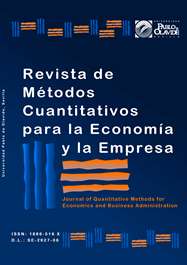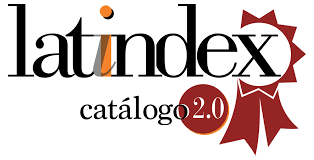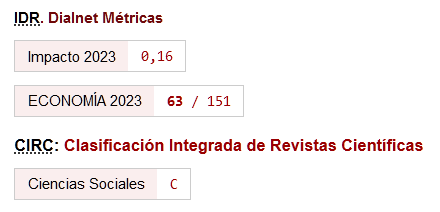Mejorar la preparación para el trabajo a través del dominio de las habilidades blandas: evidencia empírica de estudiantes universitarios en Indonesia
DOI:
https://doi.org/10.46661/revmetodoscuanteconempresa.6426Palabras clave:
habilidades blandas, preparación para el trabajo, estudiantes universitariosResumen
El estudio actual tiene como objetivo examinar y analizar el efecto de las habilidades blandas en la preparación para el trabajo. Los encuestados del estudio actual eran estudiantes activos de varias universidades de Indonesia. La técnica de muestreo utilizada es el muestreo no probabilístico, es decir, el muestreo por conveniencia. El análisis de datos se realizó mediante regresión lineal múltiple. Los resultados muestran que el aprendizaje a lo largo de la vida, la creatividad, las habilidades de trabajo en equipo y las habilidades de liderazgo influyen significativamente en la preparación para el trabajo. Mientras tanto, las habilidades para resolver problemas, las habilidades de comunicación y la ética no tienen un efecto significativo en la preparación para el trabajo. Los resultados del presente estudio proporcionan una contribución teórica sobre la relación entre las habilidades blandas y la preparación para el trabajo. Es urgente realizar investigaciones futuras para proporcionar una imagen más clara de la relación entre las habilidades blandas y la preparación para el trabajo. La investigación actual da a los estudiantes la conciencia para mejorar sus habilidades blandas. El estudio también proporciona una contribución de gestión para que las universidades formulen el concepto de desarrollo de habilidades blandas para sus estudiantes.
Descargas
Citas
Adnan, Y.M., Daud, M.N., Alias, A., & Razali, M.N. (2012). Importance of softskills for graduates in the real estate programmes in Malaysia. Journal of Surveying, Construction & property, 3(2), 1-13. https://ejournal.um.edu.my/index.php/JSCP/article/view/5806. https://doi.org/10.22452/jscp.vol3no2.4
Andrews, J., &Higson, H. (2008). Graduate employability, Softskill versus hard Business Knowledge: A European Study. Higher education in Europe, 33(4), 411-422. https://doi.org/10.1080/03797720802522627
Ang, M.C.H. (2015). Graduate employability awareness: a gendered perspective. Procedia-social and behavioral sciences, 211, 192-198. https://doi.org/10.1016/j.sbspro.2015.11.083.
Archer, W., & Davison, J. (2008). Graduate Employability: What do employers think and want? London: The Council for Industry and Higher Education.
Azmi, I.A.G., Hashim, R.C., & Yusoff, Y.M. (2018). The employability skills of Malaysian University Students. International Journal of Modern Trends in Social Sciences, 1(3), 01-14. http://www.ijmtss.com/PDF/IJMTSS-2018-03-09-01.pdf
Balcar J. (2016). Is it Better to Invest in Hard or Soft Skills? Economics & Labour Relations Review, 27(4), 453-470. https://doi.org/10.1177/1035304616674613
Birkett, W.P. (1993). Competency based standards for professional accountants in Australia and New Zealand, Melbourne, Australia. Australian Society for Certified Practicing Accountants.
Ciappei, C., & Cinque, M. (2014). Softskill per il Governo Dell’agire. Milano: Franco Angeli. https://sites.google.com/site/crowontoudihydna8/9788891706072-51incomGEtioso15
Clarke, M. (2016). Addressing the sof skills crisis. Strategic HR Review, 15(3), 137-139. https://doi.org/10.1108/SHR-03-2016-0026
Clarke, M. (2017). Rethinking graduate employability: the role of capital, individual attributes and context. Studies in Higher Education, 43(11), 1923-1937. https://doi.org/10.1080/03075079.2017.1294152
Coetzee, M., & Beukes, C.J. (2010). Employability, emotional intelligence and career preparation support satisfaction among adolescents in the school-to-work transition phase. Journal of psychology in Africa, 20(3), 439-446. https://doi.org/10.1080/14330237.2010.10820396
Delahoz-Domínguez, E., Zuluaga-Ortiz, R., Periñan-Luna, A., & Mendoza-Brand, S. (2022). A sigma approach to assessing the quality of higher education in Colombia. Journal of quantitative methods for economics and business administration, 33, 386-407.
Deloitte (2017). Global human capital trends. https://www2.deloitte.com/us/en/insights/focus/human-capital-trends.html
Development Economics Ltd (2015). The value of soft skills to the UK economy: a report prepared for McDonalds UK. London: Development Economics.
Ibrahim, D.H.M., & Mahyudin, M.Z. (2017). Youth unemployment in Malaysia: development and policy considerations. Outlook and policy in 2017. Annual report 2016, 99-106. https://www.bnm.gov.my/documents/20124/829203/cp04_003_box.pdf
Jameson, A., Charty, A., McGuinness, C., McSweeney, F. (2016). Emotional intelligence and graduates-employer’s perspectives. Procedia-social and behavioral sciences, 228, 515-522. https://doi.org/10.1016/j.sbspro.2016.07.079
Kahn, L.B. (2017). Demand for social and cognitive skills is linked to higher firm productivity. Yale Insights. https://insights.som.yale.edu/insights/demand-for-social-and-cognitive-skills-is-linked-to-higher-firm-productivity
MacDermott, C., & Ortiz, L. (2017). Beyond the business communication course: A historical perspective of the where, why, and how of soft skills development and job readiness for business graduates. The IUP Journal of Soft Skill, 11(2), 9-24.
Majid, S., Liming, Z., Tong, S., Raihana, S. (2012). Important of soft skills for education and career success. International journal for cross-disciplinary subjects in education, 2(2), 1036-1042. https://infonomics-society.org/wp-content/uploads/ijcdse/published-papers/special-issue-volume-2-2012/Importance-of-Soft-Skills-for-Education-and-Career-Success.pdf . https://doi.org/10.20533/ijcdse.2042.6364.2012.0147
Manpower Group (2014). Soft skills for talent, internal report.
Page, C., Wilson, M., & Kolb, D. (1993). Managerial competencies and New Zealand manages: on the inside, looking in? Auckland, New Zealand: Ministry of Commerce, Wellington [N.Z.].
Pool, L.D., & Sewell, P. (2007). The key to employability: developing a practical model of graduate employability. Eduation + Training, 49(4), 277-289. https://doi.org/10.1108/00400910710754435
Ranjit, S.M., & Wahab, A.B. (2008). Your dream job: how to get it and excel. Kuala Lumpur: TQM Consultants Sdn.Bhd. https://aiu.libcat.my/cgi-bin/koha/opac-detail.pl?biblionumber=129447&shelfbrowse_itemnumber=120335
Ritter, B.A. (2018). Designing management curriculum for workplace readiness: Developing students’s soft skills. Journal of Management Education, 42(1), 80-103. https://doi:10.1177/1052562917703679
Sail, R.M., & Alavi, K. (2010). Social skills and social values training for future workers. Journal of European Industrial Training, 34(3), 226-258. https://doi.org/10.1108/03090591011031737
Schneider, C. (2015). Falling short? College learning and career success. Washington, DC: Hart Research Associates.
Shanmugam, M. (2017). Unemployment among graduates need to be sorted out fast. https://www.thestar.com.my/business/business-news/2017/03/25/unemployment-among-graduates-needs-to-sorted-out-fast/
Succi, C., & Canovi, M. (2019). Softskills to enhance graduate employability: comparing students and employers’ perceptions. Studies in Higher Education, 45(9), 1834-1847. https://doi.org/10.1080/03075079.2019.1585420.
Teng, W., Ma, C., Pahlevansharif, S., &Turner, J. J. (2019). Graduate readiness for the employment market of the 4th industrial revolution. The development of soft employability skills. Education + Training, 61(5), 590-604. https://doi.org/10.1108/ET-07-2018-0154
Ting, S., Marzuki, E. Chuah, K., Misieng, J., & Jerome, C. (2017). Employers’s views on the importance of English proficiency and communication skill for employability in Malaysia. Indonesian Journal of Applied Linguistics, 7(2), 315-327. https://doi.org/10.17509/ijal.v7i2.8132
Tomlinson, M. (2012). Graduate employability: A review of conceptual and empirical themes. Higher education policy, 25(4), 407-431. https://link.springer.com/article/10.1057/hep.2011.26 . https://doi.org/10.1057/hep.2011.26
Turner, J.J., & Mulholland, G. (2017). Enterprise education: towards a framework for engaging with tomorrow’s entrepreneurs. Journal of Management Development, 36(6), 1-16. https://rke.abertay.ac.uk/ws/portalfiles/portal/9172736/Mullholland_EnterpriseEducation_Author_2017.pdf . https://doi.org/10.1108/JMD-09-2016-0176
Publicado
Cómo citar
Número
Sección
Licencia
Derechos de autor 2022 Kusni Ingsih, Suhana Suhana

Esta obra está bajo una licencia internacional Creative Commons Atribución-CompartirIgual 4.0.
El envío de un manuscrito a la Revista supone que el trabajo no ha sido publicado anteriormente (excepto en la forma de un abstract o como parte de una tesis), que no está bajo consideración para su publicación en ninguna otra revista o editorial y que, en caso de aceptación, los autores están conforme con la transferencia automática del copyright a la Revista para su publicación y difusión. Los autores retendrán los derechos de autor para usar y compartir su artículo con un uso personal, institucional o con fines docentes; igualmente retiene los derechos de patente, de marca registrada (en caso de que sean aplicables) o derechos morales de autor (incluyendo los datos de investigación).
Los artículos publicados en la Revista están sujetos a la licencia Creative Commons CC-BY-SA de tipo Reconocimiento-CompartirIgual. Se permite el uso comercial de la obra, reconociendo su autoría, y de las posibles obras derivadas, la distribución de las cuales se debe hacer con una licencia igual a la que regula la obra original.
Hasta el volumen 21 se ha estado empleando la versión de licencia CC-BY-SA 3.0 ES y se ha comenzado a usar la versión CC-BY-SA 4.0 desde el volumen 22.











